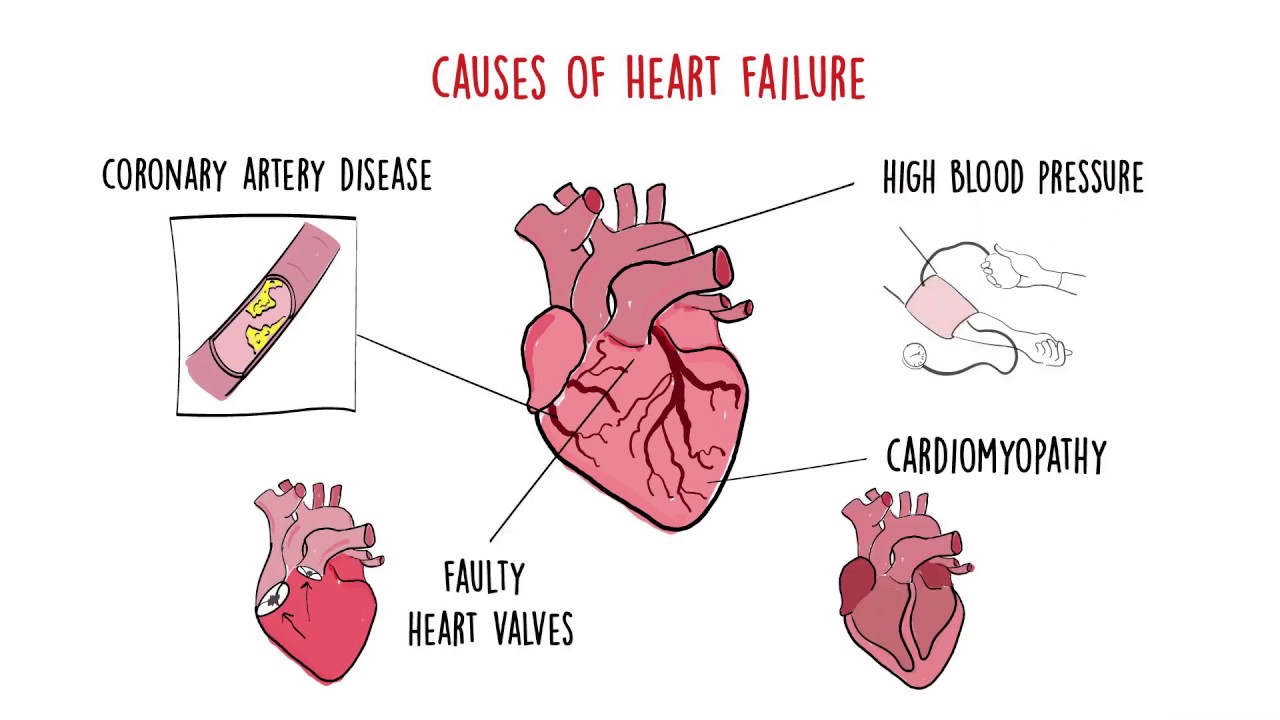Living With Heart Failure: It Can Be Done
Heart failure, also known as congestive heart failure, is a condition that develops when your heart doesn’t pump enough blood for your body’s needs. This can happen if your heart can’t fill up with enough blood. It can also happen when your heart is too weak to pump properly. The term “heart failure” does not mean that your heart has stopped. However, heart failure is a serious condition that needs medical care.
Heart failure can develop suddenly (the acute kind) or over time as your heart gets weaker (the chronic kind). It can affect one or both sides of your heart. Left-sided and right-sided heart failure may have different causes. Most often, heart failure is caused by another medical condition that damages your heart. This includes coronary heart disease, heart inflammation, high blood pressure, cardiomyopathy, or an irregular heartbeat. Heart failure may not cause symptoms right away. But eventually, you may feel tired and short of breath and notice fluid buildup in your lower body, around your stomach, or your neck.
Heart failure can damage your liver or kidneys. Other conditions it can lead to include pulmonary hypertension or other heart conditions, such as an irregular heartbeat, heart valve disease, and sudden cardiac arrest. Your doctor will diagnose heart failure based on your medical and family history, a physical exam, and results from imaging and blood tests.
Currently, heart failure is a serious condition that has no cure. However, treatments such as healthy lifestyle changes, medicines, some devices, and procedures can help many people have a higher quality of life.
How to Manage Heart Failure at Home
Following your treatment plan can help relieve symptoms and make daily activities easier. It also can lower the chance that you’ll have to go to the hospital.
Take your medicines as prescribed. Tell your provider if you have side effects from any of your medicines. They might adjust the dose or change the type of medicine you take to reduce side effects.
Make heart-healthy lifestyle changes recommended by your provider. Habits can be hard to change. Let your provider know if you’re having a hard time sticking with any of the changes. You may also be asked to limit the amount of salt and liquids that you drink to reduce fluid buildup.
Get medical care for other conditions that can worsen heart failure. These include obesity, diabetes, high blood pressure, sleep apnea, and lung, kidney, or liver disease. Tell your provider and pharmacist about all the medicines you’re taking. Taking medicines together can raise the risk of side effects. Also, certain medicines can worsen your heart failure symptoms.

Know When to Seek Help
Watch for signs that heart failure is getting worse, such as new or worsening symptoms. Weight gain, ankle swelling, or increasing shortness of breath may mean that fluids are building up in your body. Ask your provider how often you should check your weight and when to report weight changes.
Your symptoms may suddenly get worse. Ask when to make an office visit or get emergency care.
Keep the following handy:
-
Phone numbers for your provider, the hospital, and someone who can take you for medical care
-
Directions to the doctor’s office and hospital
-
A list of all the medicines you’re taking
Get Support and Know Your Options
Living with heart failure may cause fear, anxiety, depression, and stress. Talk to your healthcare provider or a professional counselor. They can help you find or learn ways to cope.
Get treatment for depression. If you are depressed, your provider may recommend medicines or other treatments that can improve your quality of life.
Join a patient support group. You can learn how other people who have similar symptoms have coped with them. Your provider may be able to help you find local support groups, or you can check with an area medical center.
Seek support from family and friends. Letting your loved ones know how you feel and what they can do to help can help lower your stress and anxiety.
Know your treatment options. If your heart failure is very serious, palliative or hospice care can improve your quality of life and help make your daily life more comfortable. This type of care focuses on managing your symptoms, helping you avoid unnecessary tests or treatments, and providing support to your loved ones. The experts at Melbourne Heart Group will be happy to tell you more if needed.



